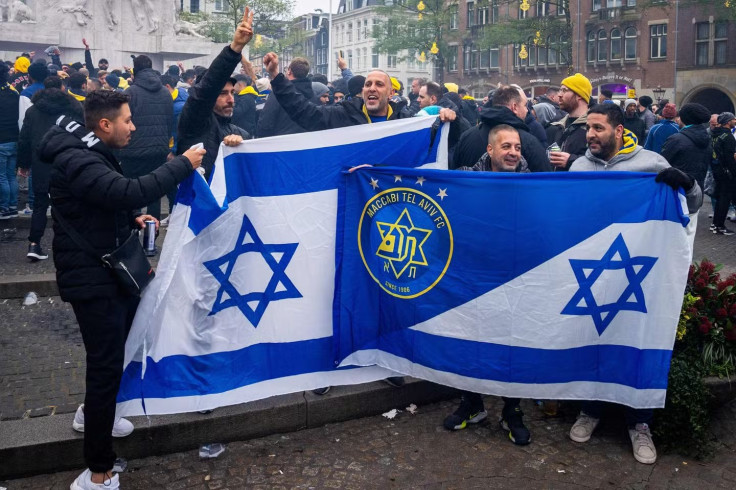When the Stands Become Political: Inside Birmingham's Ban on Israeli Fans
After violence from Polish fans in 2023 was seen as hooliganism, Birmingham's pre-emptive ban on Israeli supporters in 2025 has been cast as political

When Maccabi Tel Aviv were told their supporters would not be allowed to attend Thursday's Europa League match against Aston Villa in Birmingham, the official explanation was clear: safety. Yet within hours, that local policing decision had become a global political storm.
According to West Midlands Police, the choice was made on advice from Birmingham's Safety Advisory Group after the fixture was deemed 'high-risk'. Officers cited intelligence suggesting potential clashes and difficulties ensuring the safety of Israeli fans, given 'the current security climate.' But the reaction to the ban has been anything but procedural.
British Prime Minister Keir Starmer condemned the move as 'the wrong decision', urging authorities to 'find a safe way to allow fans to attend.' The Israeli foreign ministry labeled the decision as 'shameful', while UEFA said it was 'in contact with both clubs', and both parties could 'agree on the implementation of appropriate measures.'
I welcome the news that Maccabi Tel Aviv fans will not be permitted to watch the match at Aston Villa! Well done to all those that signed our petition! pic.twitter.com/cRDtdDc7ad
— Ayoub Khan MP (@AyoubKhanMP) October 16, 2025
The episode has reopened questions about whether European football can ever truly separate itself from politics. And for Birmingham, it's an uneasy déjà vu.
Just two years ago, the same stadium — Villa Park — was the site of a very different controversy. In November 2023, police barred Legia Warsaw supporters from entering after violent clashes erupted outside the ground. According to Reuters, three officers were injured and 46 fans were arrested following what police described as 'serious disorder' involving bottles and flares being thrown.
In that case, the decision was reactive: taken after violence had already broken out. Coverage at the time focused on hooliganism and ticket disputes, not on politics or nationality.
The Maccabi case feels profoundly different. There has been no riot, no missiles, no arrests — only the fear of what might happen. Critics argue that the preventive ban effectively punishes all Israeli fans for geopolitical tension far beyond their control.
That context matters. The decision comes amid the ongoing Israel–Gaza conflict, a rise in antisemitic incidents across Europe, and heightened security around Israeli institutions. To many, the optics of barring an Israeli club from playing in front of its own fans evokes something larger: whether European institutions can uphold neutrality when global politics enter the stadium.
As Index on Censorship observed in a 2024 essay, 'football can't ever be fully separated from politics.' The group argued that sport reflects the tensions of the societies that play it — from national pride to protest movements — and that decisions made in the name of 'safety' often carry unspoken political meanings. In this sense, the Maccabi controversy is less an exception than a symptom of a game increasingly entangled with identity and diplomacy.
Maccabi Tel Aviv 'fans' singing:
— Saul Staniforth (@SaulStaniforth) October 17, 2025
Ole ole, ole ole ole
Let the IDF win & fuck the Arabs
Ole ole, ole ole ole
Why is school out in Gaza?
There are no children left there!
But banning them from coming to the UK is antisemitism, apparentlypic.twitter.com/FQjfEGwNmY
Ultimately, Legia's ban was framed as a security failure, while Maccabi's has been framed as a moral one. One was about behavior; the other, about belonging.
Football, once proud of its claim to be apolitical, has long outgrown that luxury. The terraces have become an extension of foreign policy, and the scoreboard now carries the weight of global tension.
As Starmer reminded this week, 'the role of the police is to ensure all football fans can enjoy the game, without fear of violence or intimidation' — a principle that stands in stark contrast to a decision that shuts out an entire club's supporters.
© Copyright IBTimes 2025. All rights reserved.





















